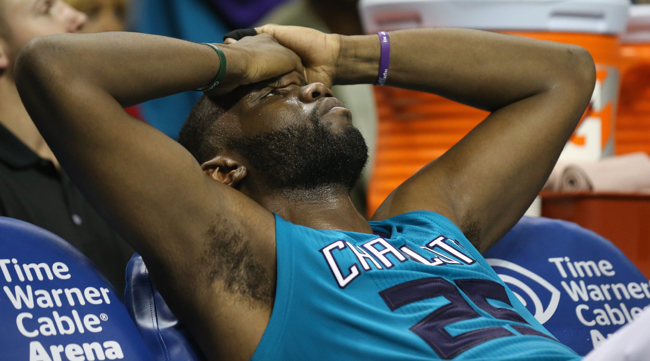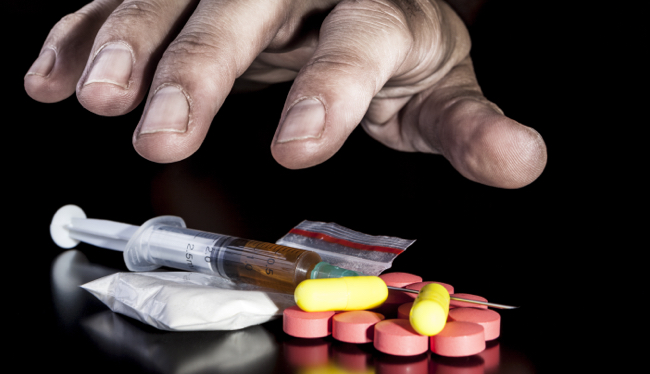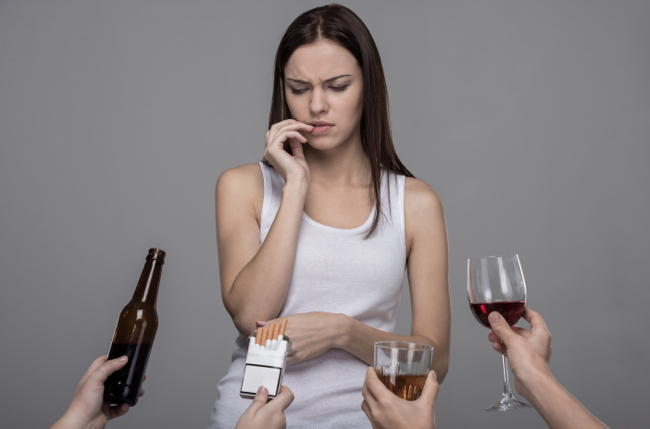
Al Jefferson will lose approximately $613,636 for violating the NBA’s anti-drug policy. According to NBA rules, when a player is suspended without pay, they forfeit 1/110th of their salary for each game missed. Since Al is making $13.5 million this year with Charlotte, that equals out to a shade north of what most of us will likely make over our entire lifetime. While it’s nice the NBA donates the money to charity, the loss for Jefferson is still infuriating.
Al Jefferson didn’t hit anyone, or crash his car; he didn’t get loaded at a bar before getting behind the wheel of an automobile; Al didn’t threaten anyone or beat anyone up; a gun wasn’t found on his person. Al didn’t denigrate a minority group, or spit on a fan. No, all Big Al did was smoke some cannabis, a plant commonly referred to as weed. Al Jefferson lost all that money, and the Hornets lost their low-post presence for 10 days because he smoked some freakin’ herb (we’re old, so some of these colloquialisms for pot will seem anachronistic. Please bear with us).
In Alaska, Washington, Colorado, Oregon and America’s freakin’ capital, it’s legal to purchase cannabis for recreational use. Two of those states — Colorado and Oregon — house NBA teams. In 11 other states, cannabis use — and possession of small amounts — has been decriminalized and can be obtained for medicinal purposes. Twenty-three states — plus Washington D.C. — have laws legalizing cannabis in some form. The majority of Americans now support the legalization of cannabis.
And even the NBA — the topic of this half-rant, half-exasperated sigh — doesn’t really view cannabis as all that harmful — at least in relation to other more addictive and harmful drugs.
Here’s how the NBA words its marijuana* section of the Anti-Drug Program set forth in the current Collective Bargaining Agreement:
Marijuana: If a player tests positive for marijuana during Random Testing or Reasonable Cause Testing, or he is convicted of, or pleads guilty, nolo contendre or no contest to, the use or possession of marijuana in violation of the law, he will be required to enter the Marijuana Program. A second positive test for marijuana will result in a $25,000 fine and the player’s re-entry into the Marijuana Program. A third positive test for marijuana will result in a five-game suspension and the player’s re-entry into the Marijuana Program. A fourth (or any subsequent) positive test for marijuana will result in a suspension that is five (5) games longer than the player’s immediately-preceding suspension.
That’s quite different from the consequences if players are caught with “Drugs of Abuse,” or PEDs in their system.
(1) Drugs of Abuse: If a player tests positive for a Drug of Abuse during Random Testing or Reasonable Cause Testing, he will be dismissed and disqualified from the NBA. A player will also be dismissed and disqualified from the NBA if he is convicted of, or pleads guilty, no contest or nolo contendre to, a crime involving the use or possession of a Drug of Abuse.
(2) SPEDs: If a player tests positive the first time for SPEDs during Random Testing or Reasonable Cause Testing, the player will be suspended for ten (10) games and will be required to enter the SPEDs Program. A second positive test for SPEDs will result in a 25-game suspension and the player’s re-entry into the SPEDs Program. A third positive test for SPEDs will result in a one-year suspension and the player’s re-entry into the SPEDs Program. A fourth pos- itive test for SPEDs will result in the player being dismissed and disqualified from the NBA. A player will also be dis- missed and disqualified from the NBA if he is convicted of, or pleads guilty, no contest or nolo contendre to, a crime involving the use or possession of a SPED.
Those drugs of abuse are exactly what you think they are (basically, whatever you can procure on shakedown street at the latest [insert jam band] show): “…amphetamine and its analogs (including, but not limited to, methamphetamine and MDMA), cocaine, LSD, opiates (heroin, codeine and morphine), and PCP (collectively, “Drugs of Abuse”)…”

So, under the current CBA’a Anti-Drug Program, getting caught taking PEDs and harder drugs — cocaine, acid, ecstasy, heroin etc. — leads to a much more severe penalty than cannabis. The two most lethal drugs of them all, alcohol and tobacco, are still legal in the United States, and NBA players are free to indulge in them as much as they wish.
We’ve been here before, most recently — and infamously, since he eventually just quit the NBA and left a lot of money on the table to do so — with former Bucks center, Larry Sanders.
While Sanders isn’t an ideal symbol for the NBA’s outdated drug policy, depression appears to be one of the primary culprits for his exodus out of the sport, and his multiple suspensions are part of the NBA’s overriding problem with the plant. While we didn’t necessarily agree when Sanders publicly said, “I believe in marijuana,” it’s primarily a diction issue.

Smoking cannabis is bad for you because of the carcinogens produced when you smoke it. Any other side effects, and there’s obviously some temporary cognitive impairment, aren’t nearly as harmful as alcohol and tobacco. Most intelligent people already know this, including the NBA’s head honcho, Adam Silver.
At least the NBA accounts for the disparity with less severe penalties. And yet, Al Jefferson — as genial and hardworking a player as you’re liable to find in the Association — will still be suspended for five games whenever he returns from injury.
Don’t get us wrong, though. Jefferson should absolutely be penalized. Everyone in the NBA should be held to the same standards of conduct outlined in the CBA’s bylaws. This is just another reminder how antiquated the Anti-Drug Program has become. And yet, Jefferson and the Hornets are forced to release statements like these, which mirror those of far more outrageous offenses where innocent people are actually at risk of being hurt:
Hornets’ statement: “We are disappointed in Al’s decisions that led to this suspension. As an organization, we do not condone this behavior. We have addressed this with Al. He is regretful and understands that we expect him to learn from this mistake.”
Jefferson’s statement: “I want to apologize to the Hornets organization, our owner, my teammates and my coaches for the poor decision that I made. I know I have let people down, especially the Hornets fans that have been so supportive of me since I arrived in Charlotte two years ago. I am blessed to be able to play the game that I love for a living and I do not take that for granted. From the bottom of my heart, I am truly sorry, and I am committed to making smarter decisions in the future.”
Despite all this doublespeak and hypocrisy, there is hope.
USA Today‘s Jeff Zillgitt, one of the most respected writers in the game today, prophesies a future where the league’s Anti-Drug Policy doesn’t sound so outdated and is more in line with the mores of America in 2015. That’s a roundabout way of saying, “take the cannabis (marijuana) section out entirely – just like tobacco and hooch.”
With that said, my prediction is that marijuana will not be part of the anti-doping policy in the next collective bargaining agreement.
— Jeff Zillgitt (@JeffZillgitt) December 9, 2015
Will this actually happen when the league’s owners and the NBPA sit down to negotiate the next CBA? We don’t know, but we really hope so. The NBA’s drug policy is stupid, and it’s been in dire need of a makeover for some time.
*Throughout the post we’re referring to cannabis as cannabis because that’s the name of the plant. The use of “marijuana,” or “marihuana” and “mariguana,” was — according to Wikipedia — first heard in Mexico, but the ultimate etymology isn’t really known; the Oxford English Dictionary points toward the Aztec, Nahuatl “mallihuan,” meaning “prisoner,” which is pretty symbolic if true, though others have discounted it as an accidental homophony. Anyway, the use of the term “marijuana” in North America was popularized by Harry J. Anslinger in the 1930s, during his campaigns against the drug. So yeah, we’re going to keep referring to the plant.






